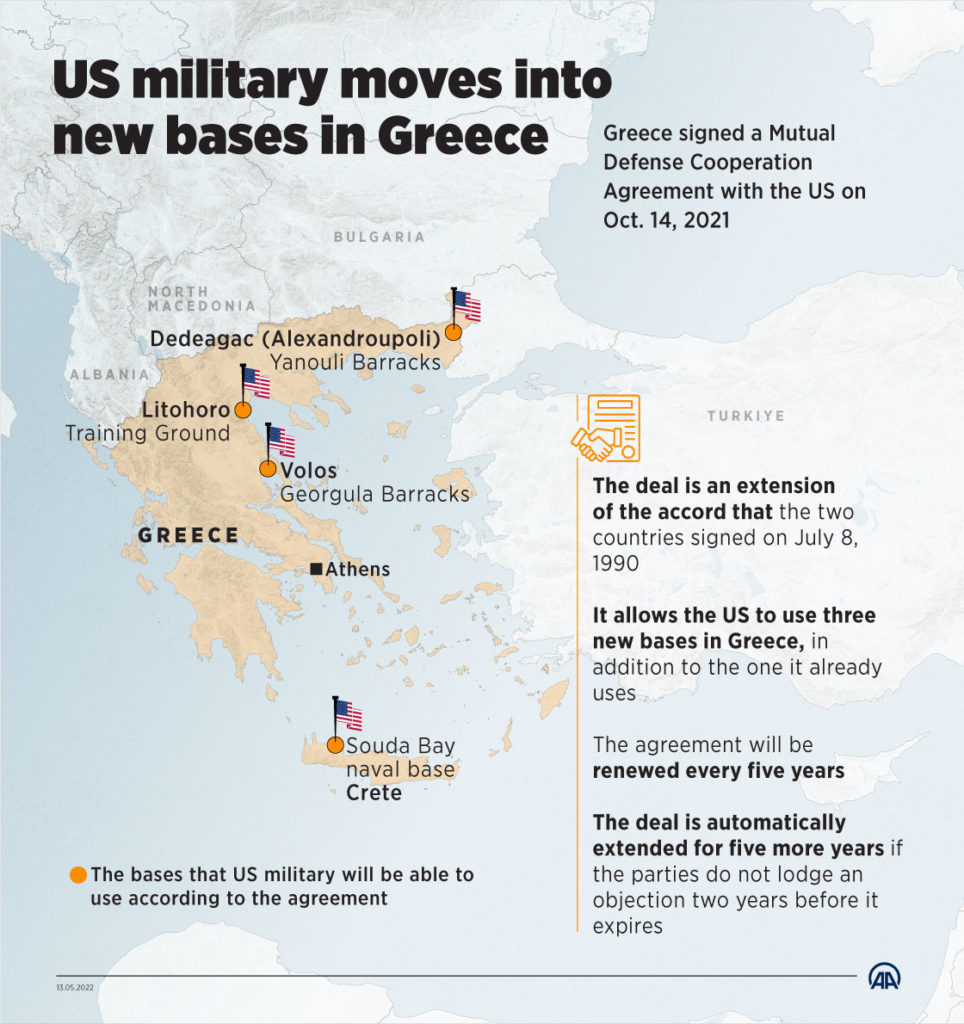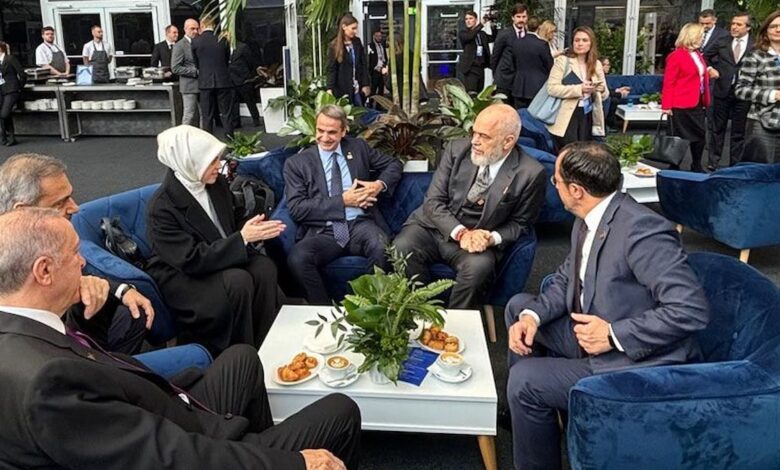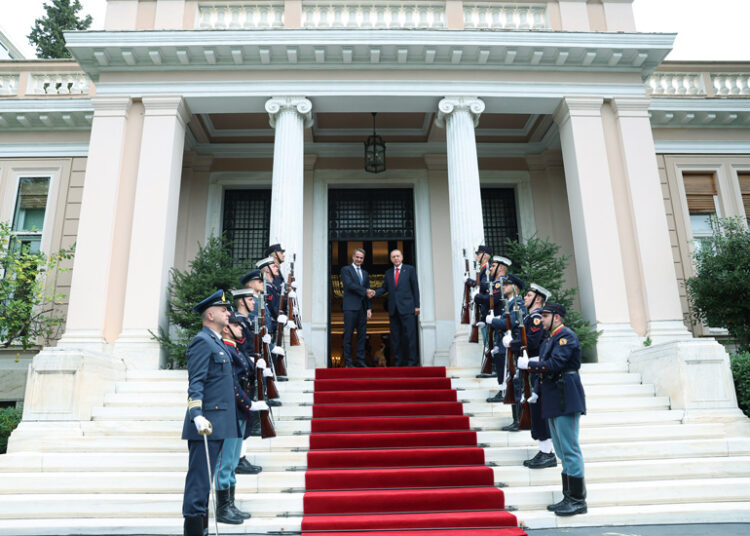Levent Kenez/Stockholm
Turkey’s main opposition Republican People’s Party’s (CHP) MP Eylem Ertug Ertugrul, along with other CHP representatives, submitted a motion to parliament on November 6 requesting a floor discussion on claims that Greece has occupied Turkish islands in the Aegean Sea. Opposition representatives believe that the Turkish government is being overly conciliatory toward Greece in order to avoid conflicts with the West.
Outlining the rationale behind the motion, Ertugrul accused Greece of violating international law by militarizing Eastern Aegean islands, including Lesbos, Lemnos, Chios and Samos, which were designated as demilitarized zones under the 1912 Treaty of Lausanne. He further alleged that Greece had established municipalities, conducted elections and collected taxes on Turkish territories.
Ertugrul also criticized the Turkish government for its inadequate response to these violations, pointing out contradictions in Turkish President Recep Tayyip Erdogan’s earlier statements on the issue. While Erdogan had previously warned Greece with the phrase “We could come suddenly one night,” he later seemed to shift toward reconciliation, declaring that “the matter is closed” after improved relations following his 2023 election. Ertugrul argued that this inconsistency in the government’s approach emboldened Greece and undermined Turkey’s stance on national sovereignty.
Ertugrul called for a comprehensive investigation of the government’s handling of Greece’s military presence on these islands and stressed the need for transparency to preserve peace and stability in the region.
In support of the CHP motion, former ambassador and member of the Future Party (Gelecek Partisi), Cemalettin Kani Torun, criticized Turkey’s failure to effectively use international law to challenge Greece’s claims and militarization of contested islands. Torun pointed to increasing military cooperation between Greece and the US, including the establishment of a new US military base in Alexandroupoli, located just 45 kilometers from Turkey’s border. He argued that this base, the ninth US military installation in Greece, serves to counter Russia, but also disregards Turkey’s regional security concerns. Torun claimed that this development has turned the Aegean dispute into a broader regional security issue influenced by US strategy to contain Russia, particularly through the transfer of American armored vehicles to Greek islands. He urged Turkey to adopt a proactive foreign policy to address growing tensions in the region.
The presence and number of US military bases in Greece is a topic that periodically arises in Turkey’s political discourse. Ahead of the 2023 elections, President Erdogan criticized the growing US military presence in the neighboring country. “There are nearly 10 [US] bases in Greece,” he stated. “Who is being threatened? Why are these bases being established in Greece?”
Erdogan had previously remarked that Greece itself had effectively become a US military base. The US military installations in Greece are often highlighted by government-funded Turkish media and nationalist groups that support the government. These pro-government commentators argue that the US bases are a threat to Turkey, though there are often inconsistent figures about the precise number of supposed bases.
In reality, there is only one actual US base in Greece, located at Souda Bay, which has been in operation since 1969. However, under the US-Greece Mutual Defense Cooperation Agreement (MDCA), signed in October 2021 and ratified by the Greek parliament in May 2022, American forces gained access to four additional Greek military bases.

İYİ (Good) Party MP Şenol Sunat expressed support for the motion, claiming that Greece has systematically occupied Turkish islands since 2004, shifting to a more overt annexation strategy by 2009. Sunat criticized past Turkish governments for failing to respond to these actions, alleging that they turned a blind eye to Greece’s encroachments based on earlier hopes of joining the European Union. She also referred to President Erdogan’s inconsistent statements, noting that his threats were not followed by concrete action, which led to public confusion and emboldened Greece. Sunat called for a dedicated investigation to restore Turkey’s sovereignty over the contested territories.
Responding on behalf of the governing Justice and Development Party (AKP), MP Abdurrahman Babacan noted the legal framework established by historical treaties, particularly the Treaty of Lausanne and the 1947 Treaty of Paris, which stipulated that certain islands would remain demilitarized. Babacan emphasized that Turkey’s foreign policy regarding the Aegean has consistently relied on peaceful engagement, but he acknowledged that regional dynamics have shifted, especially following the 2020 US elections. He argued that the election of President Joe Biden had revitalized US-Greece relations, with a renewed focus on transatlantic policies and strategic interests in the region. Babacan linked Greece’s increased military posture to its alignment with US strategic interests in the eastern Mediterranean and the Balkans.
Babacan rejected the idea that Greece is occupying Turkish islands, describing the issue as a complex dispute over the status of specific islets and maritime borders. He reaffirmed that Turkey’s approach to these disputes would continue to focus on dialogue and peaceful diplomacy, ensuring the protection of national interests and regional stability.
The CHP’s motion was rejected by the ruling party and its supporting allies following a vote in the general assembly.
It’s no secret that President Erdogan’s approach to Greece has undergone significant shifts both before and after the 2023 general election. As Turkey is grappling with a difficult economic situation, it is understandable that Erdogan, in an effort to avoid additional crises with the EU and the US, would be cautious about escalating tensions with Greece. The cessation of oil exploration activities by Turkish ships near the Aegean and Cyprus, as well as the warm signals Erdogan sent during his visit to Athens on December 7, 2023, are seen not only as a gesture toward Greece but also as a message to the West.

Despite his increasingly poor human rights record and the erosion of democracy in Turkey, Erdogan remains acutely aware of support he receives from the West, particularly due to his role in preventing migrants from reaching European shores. He also understands that navigating the Russia-Ukraine conflict with a balancing act amid accusations of facilitating evasion of sanctions levied against Russia has led to a discordant role within NATO. Given these factors, Erdogan is well aware that a military conflict with Greece would not be beneficial for his government.
However, the issue of Greece has always been a political tool in Turkey, often used by politicians to appeal to nationalist voters. Erdogan frequently taps into this narrative before elections, but with Turkey’s focus now shifting to discussions about potential military operations in northern Syria and the Kurdish groups there, the prospect of the Greek issue resurfacing as a primary topic seems unlikely in the immediate future.
Text of the motion submitted by Turkey’s main opposition party CHP:












